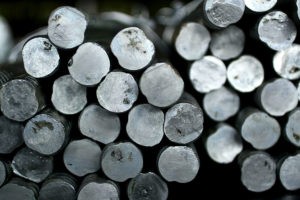More than 40 companies express interest in Ghana’s aluminium value chain
 The Ghana Integrated Aluminium Development Corporation (GIADEC) says more than 40 companies both Ghanaian and international ones have expressed interest in bidding to be selected to develop various aspects of the aluminium value chain.
The Ghana Integrated Aluminium Development Corporation (GIADEC) says more than 40 companies both Ghanaian and international ones have expressed interest in bidding to be selected to develop various aspects of the aluminium value chain.
Mr Michael Ansah, Chief Executive Officer of GIADEC, told a media briefing on Wednesday that 12 companies out of the total, have been shortlisted based on operational and financial capacity as well as the ability to execute the project.
“The process is ongoing and no new bauxite mining licences have been awarded as at December 2019,” he said.
It is estimated that there are 900 million tonnes of bauxite minerals across three main locations, Awaso with reserves of 60 million tonnes, Nyinahin-700 million tonnes and Kyebi-160 million tonnes.
Mr Ansah said verification drilling have been completed and the results once analysed would be used to confirm the mineral resource estimates.
He said the intention of GIADEC is achieve in partnership with selected private investors the establishment of up to four mining concessions (one in Awaso already in Operation plus up three additional – two in Nyinahin and one in Kyebi).
Two or three new refineries with a combined capacity of four to six million tonnes of alumina (refined bauxite).
There would also be the retrofit of VALCO to increase production capacity to 300,000 metric tonnes of aluminium and a new smelter with production capacity of up to 500,000 metric tonnes of aluminium, he said.
It is expected to lead to the creation of over 35,000 new jobs (10,000 direct and 25,000 indirect).
It is also expected that there will be an annual boost to the economy of about $10 billion roughly 15 per cent of country’s expected GDP as at end of 2019.
The $10 billion boost will be achieved through mining, refining and smelting (approx $2-3 billion) in addition to contributions from the downstream and allied industries.
Mr Ansah said GIADEC is committed to the responsible and sustainable development of the aluminium industry and would ensure good environmental stewardship.
It said it would protect the vegetation, water bodies and wildlife in forest reserves where mining of bauxite will be undertaken.
Mining in Atewa forest has been a cause of concern for some civil society organisations and residents.
He said the company would draw on industry best practices to ensure minimal impact to the environment and local communities.
“There are examples of industry best practice where forest reserves have been mined and successfully rehabilitated and GIADEC will draw upon these examples to ensure minimal impact to the environment and local communities,” he said.
Some examples of suggested practices for Ghana’s Integrated Aluminium Industry include: using strip mining instead of open-pit mining to reduce noise, dust and the mining footprint.
The restriction of mining near water bodies and the removal and preservation of top soil to preserve flora and fauna for later reforestation.
The development of an integrated aluminium industry in Ghana is a key pillar of President Nana Akufo-Addo’s vision of a Ghana Beyond Aid.
The Government has identified the development and creation of an Integrated Aluminium Industry (IAI) in Ghana as one of the major pillars for transformation of the Ghanaian economy and has classified the bauxite to aluminium value addition as a strategic sector.
It is in this connection that GIADEC was established through an Act of Parliament in August 2018 with the mandate to promote and develop an Integrated Aluminium Industry in the country.
GIADEC will assume Government of Ghana’s full interests across the value chain in the Integrated Aluminium Industry and will hold a minimum 30 per cent stake in any new mine, refinery or smelter alongside private investors.
Source: GNA
